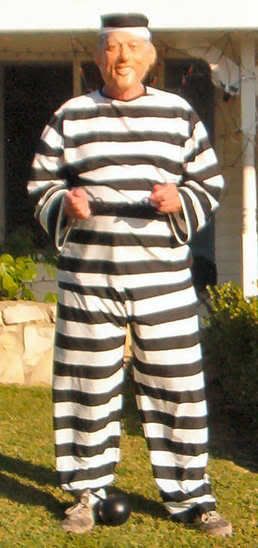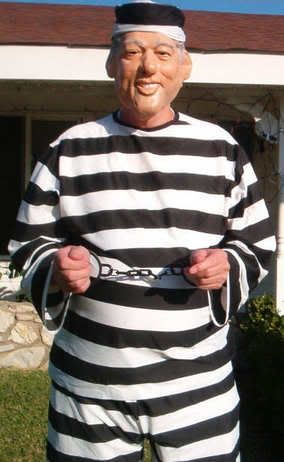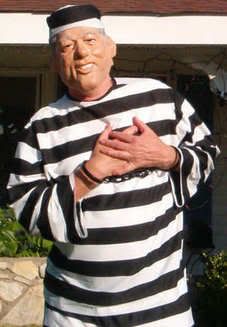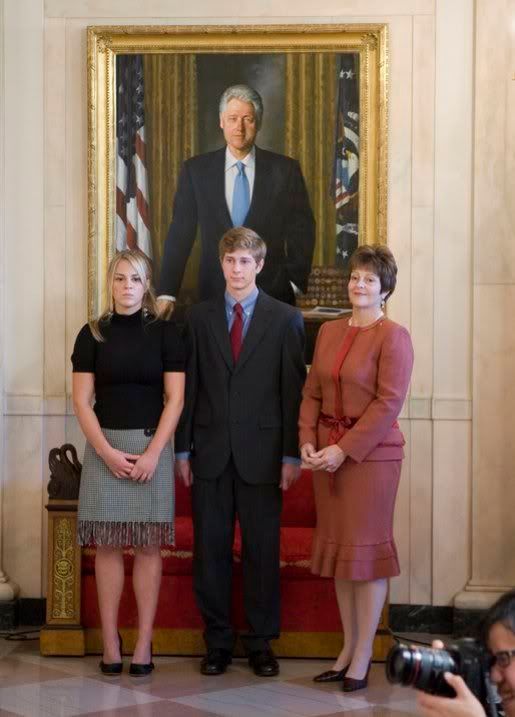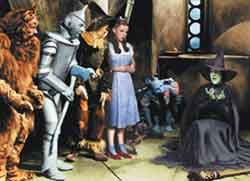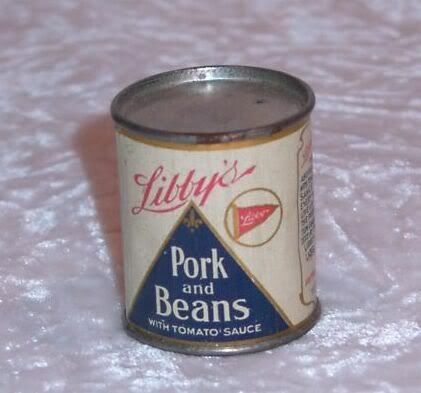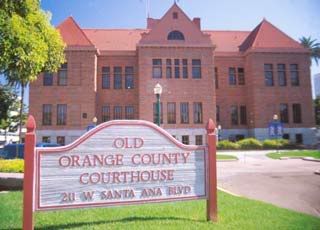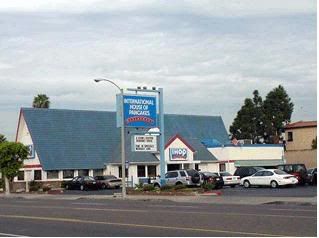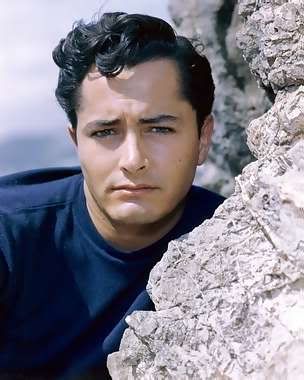
According to the January 31, 1985
New York Daily News quote attributed to former judge Sol Wachtler and popularized by Tom Wolfe in
Bonfire of the Vanities, “district attorneys now have so much influence on grand juries that ‘by and large’ they could get them to ‘indict a ham sandwich.’” In the recent indictment of Tom DeLay, Ronnie Earle’s ham sandwich was so unappetizing that the second grand jury out of three refused to take a nibble.
In
What I Told the Grand Jury, Matt Cooper was moved to employ the same edible metaphor in the context of the special counsel investigation into the so-called Plame affair. “A grand jury, the old maxim goes, will indict a ham sandwich if a prosecutor asks it of them. But I didn't get that sense from this group of grand jurors. They somewhat reflected the demographics of the District of Columbia. The majority were African American and were disproportionately women. Most sat in black vinyl chairs with little desks in rows that were slightly elevated, as if it were a shabby classroom at a rundown college. A kindly African-American forewoman swore me in, and when I had to leave the room to consult with my attorneys, I asked her permission to be excused, not the prosecutor's, as is the custom. These grand jurors did not seem the types to passively indict a ham sandwich. I would say one-third of my 2 1/2 hours of testimony was spent answering their questions, not the prosecutor's, although he posed them on their behalf.”
On April 7, 2005, the
Washington Post reported that the “special prosecutor investigating whether Bush administration officials illegally revealed the identity of a covert CIA operative says he finished his investigation months ago, except for questioning two reporters who have refused to testify.” Those two reporters were Cooper, who testified in July 2005, and the more recent witness,
Judith Miller. Perhaps the grand jury did not seem passive or disinterested to Cooper because they had been kept waiting several months specifically for his testimony.
I have spent the bulk of my spare time this past week reading and re-reading scores of online articles and wild speculation about Patrick Fitzgerald’s investigation, trying like everybody else to prepare for its resolution. I do not see any clear cut evidence in the accounts by Cooper and Miller of their grand jury testimony that support indictments on the leak of Plame’s name and identity, which was the original grounds for this investigation. In fact, I would hesitate to use them as primary witnesses.
The current issue of
Newsweek offers a possible antidote to hysterical, hyperbolic hyperventilation on the left. “Some press reports identified John Hannah, Cheney's deputy national-security adviser, as a potentially key figure in the investigation. Hannah played a central policymaking role on Iraq and was known to be particularly close to Ahmad Chalabi, whose Iraqi National Congress supplied some of the faulty intelligence about WMD embraced by the vice president in the run-up to the invasion. Lawyers for Rove and Libby have said their clients did nothing wrong and broke no laws. Last week Hannah's lawyer Thomas Green told NEWSWEEK his client ‘knew nothing’ about the leak and is not a target of Fitzgerald's probe. ‘This is craziness,’ he said.”
We do not know everything that Patrick Fitzgerald knows about his investigation, but surely he knows everything that we know.
We know that on July 14, 2003, Robert Novak wrote the
column, from which most of us first learned of Valerie Plame, that triggered the CIA-referred investigation.
We know that on August 1, 2005, Novak broke his silence of nearly two years on the Plame affair to write a rebuttal to quotes from ex-CIA spokesperson Bill Harlow cited in a July 27, 2005
Washington Post article, in which Walter Pincus and Jim VandeHei wrote the following: “In a strange twist in the investigation, the grand jury -- acting on a tip from Wilson -- has questioned a person who approached Novak on Pennsylvania Avenue on July 8, 2003, six days before his column appeared in The Post and other publications, Wilson said in an interview. The person, whom Wilson declined to identify to The Post, asked Novak about the ‘yellow cake’ uranium matter and then about Wilson, Wilson said. He first revealed that conversation in a book he wrote last year. In the book, he said that he tried to reach Novak on July 8, and that they finally connected on July 10. In that conversation, Wilson said that he did not confirm his wife worked for the CIA but that Novak told him he had obtained the information from a ‘CIA source.’”
Surely Fitzgerald has questioned Robert Novak about this amazing coincidence.
We know that Robert Novak has been a widely respected reporter for 48 years whose journalistic integrity had never been questioned until he revealed Plame’s name. In his August 1st
column, Novak wrote, “I eagerly await the end of this investigation when I may be able to correct other misinformation about me and the case.” Surely Fitzgerald knows what Novak means by this. Surely he knows that Novak could testify about what he calls the “massive political assault on President Bush” by Wilson and other Democrats, such as Senator Charles Schumer.
We know that Joe Wilson’s version of the events surrounding his 2002 trip to Niger were contradicted by the Senate Intelligence Committee
report ordered on July 7, 2004 during Fitzgerald’s first year investigating the leak. Surely Fitzgerald heard or read of Wilson’s documented deceptions and has tested the veracity of Wilson’s testimony.
We know that Novak explained in his October 1, 2003
column how he came to reveal Plame’s name and identity. “First, I did not receive a planned leak. Second, the CIA never warned me that the disclosure of Wilson's wife working at the agency would endanger her or anybody else. Third, it was not much of a secret.”
Later in the column, Novak reiterated, “How big a secret was it? It was well known around Washington that Wilson's wife worked for the CIA. Republican activist
Clifford May wrote Monday, in National Review Online, that he had been told of her identity by a non-government source before my column appeared and that it was common knowledge. Her name, Valerie Plame, was no secret either, appearing in Wilson's ‘Who's Who in America’ entry.”
He added, “During a long conversation with a senior administration official, I asked why Wilson was assigned the mission to Niger. He said Wilson had been sent by the CIA's counterproliferation section at the suggestion of one of its employees, his wife. It was an offhand revelation from this official, who is no partisan gunslinger. When I called another official for confirmation, he said: ‘Oh, you know about it.’ The published report that somebody in the White House failed to plant this story with six reporters and finally found me as a willing pawn is simply untrue.”
According to speculation, the confirming official was Karl Rove, but Fitzgerald and Novak know for sure. There is rampant guessing about Novak’s first source, the senior administration official, but Fitzgerald and Novak know for sure.
According to credible reports, Tim Russert and Judy Miller were allowed to limit the scope of their testimony. Isn’t that a dangerous strategy for Fitzgerald if he plans to bring indictments related to their testimony? At trial, Russert might be asked about Scooter Libby’s side of their conversation and Miller could be grilled about sources other than Libby. If Fitzgerald has not presented these issues before the grand jury, as has been reported, isn’t he leaving important stones unturned that could lead to surprise testimony later from Russert or Miller?
If Fitzgerald indicts one or more big league players in the Bush administration, surely he knows they will have big league representation when they go to trial – the kind that will leave no stone unturned. Surely he would expect Victoria Toensing and Bruce W. Sanford, who drafted the 1982 Intelligence Identities Protection Act at the heart of Fitzgerald's investigation, to testify as expert witnesses. Surely he has no doubts about their position after they co-authored a critical Op-Ed piece in the
Washington Post; after they filed the
amici curiae brief on behalf of 36 news organizations to prevent the forced testimony of Miller and Cooper; and after
Toensing recently described the Plame affair as "the CIA doing a covert action against the President." About the CIA's role, she asked Jed Babbin, "Now why is it that they would allow Joe Wilson to go over, do this mission, not sign a confidentiality agreement, and then allow him to write about it in the New York Times?"
Here’s another famous maxim: be careful what you wish for. The liberal MSM have been pushing Wilson’s discredited version of the Iraq-Niger-yellowcake events to the forefront of the Plame leak investigation without regard for facts or consequences. If indictment leads to trial, the same reporters who appeared before Fitzgerald’s grand jury may be answering detailed interrogatories about names, dates and other potentially embarrassing revelations – and so might other interested parties, including Mr. and Mrs. Wilson.
Take a lesson from Ronnie Earle's mistake. If you hunger to get a ham sandwich indicted, make sure you drive a skewer through its heart so it cannot come back to bite you.




